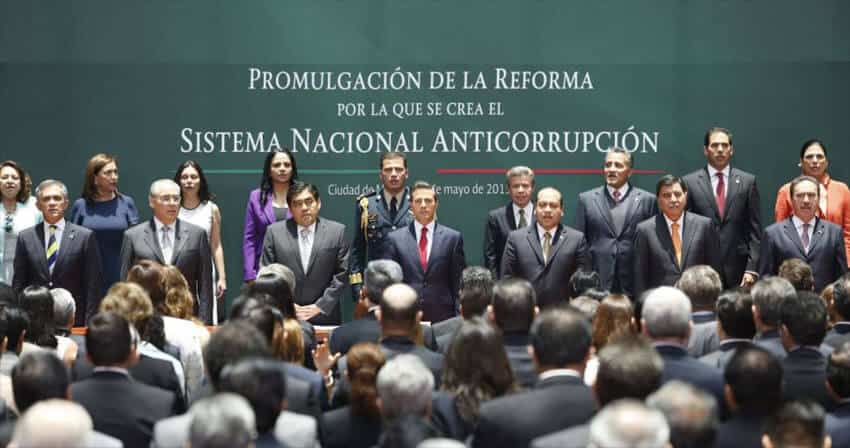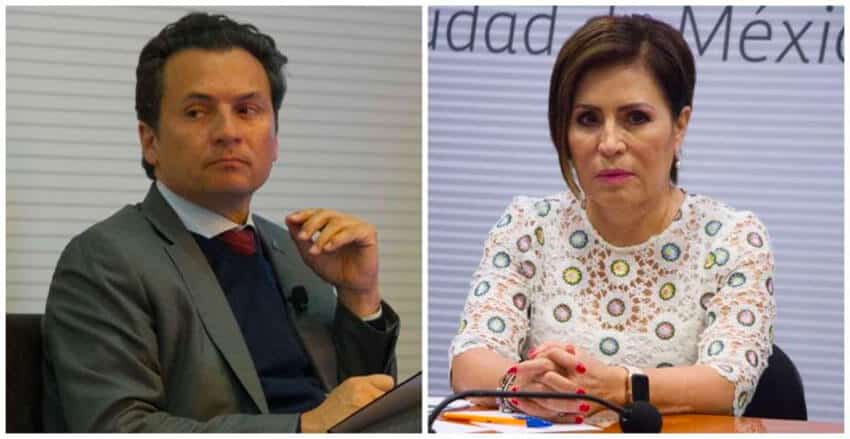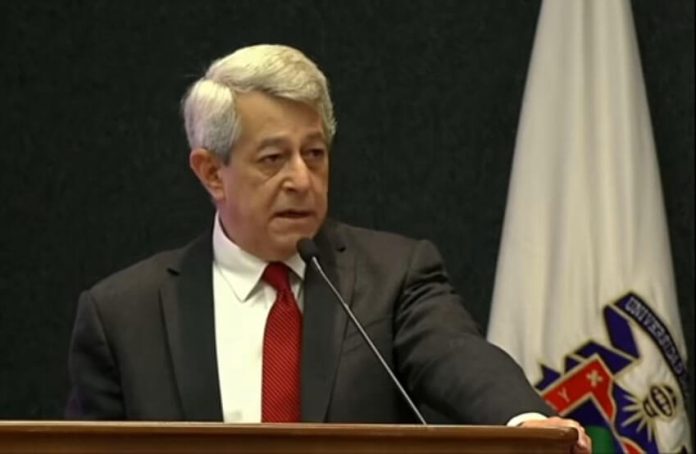Mexico has the tools needed to combat corruption but isn’t using them, according to a University of Guadalajara (UDG) academic.
Mauricio Merino Huerta, director of the UDG’s Accountability and Corruption Fighting Research Institute (IIRCCC), compared the National Anti-Corruption System (SNA) and anti-corruption laws to a plane that isn’t used, a topical comparison given that President López Obrador – who styles himself as Mexico’s chief corruption fighter – refuses to use the presidential plane but has been unable to sell it.
“We have a very good institutional design, a good instrument to combat the phenomenon of corruption but it isn’t used. We have a parked plane that isn’t being used,” Merino told the newspaper El Universal.
Established by the 2012-18 government led by former president Enrique Peña Nieto, the SNA consists of a range of a range of different institutions, among which are the Ministry of Public Administration, the National Institute of Transparency, the Federal Auditor’s Office and the Anti-Corruption Prosecutor’s Office. The system is coordinated by an executive secretariat, which López Obrador hopes to abolish.

Merino said that an IIRCCC study found that the SNA institutions have shirked their corruption-fighting roles since the system was established in 2015. López Obrador – who has been criticized for showing little interest in the SNA – is not to blame, the academic said, asserting that procrastination is an entrenched problem in Mexico’s political system.
“The SNA was promulgated in the six-year term of Enrique Peña Nieto, but it wasn’t completed and to put it bluntly there was an open boycott of the system from the Peña Nieto government, while the López Obrador government has spurned it,” Merino said. “… The combined result is that [the SNA institutions] have not fulfilled their mandates,” he said.
Merino said the government’s claim that it has put an end to impunity for corruption isn’t backed up by data. In 2020, the IIRCCC found that only nine of over 30,000 probes into presumed acts of corruption had progressed to the next stage of investigation.
Merino also raised concerns about transfers of over 30 billion pesos (US $1.46 billion) to military trusts. “They should give a clear account [about the money] given that they’ve criticized [public] trusts so much,” he said.

Former Pemex CEO Emilio Lozoya and ex-cabinet minister Rosario Robles are in jail awaiting trial on corruption charges, but going after allegedly corrupt individuals is not akin to tackling institutional corruption, Merino charged.
“That’s something else. We think that it’s necessary and correct to punish those who commit acts of corruption, without a doubt, but the problem is systemic, it’s the system as a whole that’s … [corrupted]. An antidote was designed for that, which is the SNA. The plane is on the runway but it doesn’t have a pilot,” he said.
Merino, a political scientist and sociologist who has worked at universities in Mexico and abroad, told El Universal that the IIRCCC study determined that many of the officials employed at SNA institutions were not appointed on merit. Rather, people were given positions because of their political views, their links to political parties or their personal friendships, he said. Resources assigned to the institutions are used discretionally for political purposes, Merino added.
His assessment of Mexico’s anti-corruption efforts, or lack thereof, comes three months after the publication of a regional anti-corruption study that found “insufficient political will” for the implementation of Mexico’s anti-corruption framework.
The 2021-22 edition of the Latin America Anti-Corruption Assessment, completed by the New York City Bar Association’s Cyrus R. Vance Center for International Justice, also stated that the fight against corruption is being used for political purposes. However, Mexico’s overall anti-corruption score did improve slightly, rising to 5.64 out of 10 compared to 5.51 a year earlier.
López Obrador has a much higher opinion of his administration’s anti-corruption efforts, and even declared less than a year after taking office that there is “zero corruption” in the federal government as a result of his dedication to “sweeping away” what had developed over the past 30 years.
He gave a more sober assessment this week, telling reporters at his regular news conference on Wednesday that his government continues to combat corruption “poco a poco,” or bit by bit. The president made an embarrassing slip of the tongue at the same conference, asserting that “a government without corruption is completely useless,” before correcting himself when a reporter questioned him about his remark.
With reports from El Universal
